You just realized the recipe calls for fresh rosemary, not dried. Do you need to run back out to the store? You only need a few sprigs. Is it worth it to buy that clamshell for a few bucks? Herbs can present some tricky decisions in the kitchen, so here’s everything you need to know about using fresh vs. dry herbs in your cooking.
Which herbs should I buy fresh vs. dry?
When it comes to drying, not all herbs are created equal. Woody or “hard herbs” like rosemary, thyme, oregano, and sage all dry perfectly well with their essential flavor remaining intact. On the other hand, tender-leafed or “soft herbs” like basil, mint, parsley, and chives lose their oomph when dried. Simply put, dried thyme and oregano taste great, but dried parsley and basil are sadly a shadow of their fresh cousins.
TIP: When using dry herbs, be sure to give them a sniff. If they’ve been sitting in your spice drawer so long that their signature scent is gone, it’s probably time to compost them and get new ones.
Can I substitute dry herbs for fresh, and vice versa?
Most of the time, yes! If a woody herb is called for, its dried counterpart will usually work just as well. The most important rule to remember when it comes to substitution is that dry herbs are more pungently flavored than their fresh counterparts, so you’ll need to adjust your measurements accordingly.
TIP: As a general rule, you’ll need about ⅓ as much dried herbs as you would fresh, or 3x as many fresh herbs as you would dry herbs.
When should I add herbs when I’m cooking?
Herbs make almost any dish better, but timing really matters. Add pungent “hard herbs” like thyme, oregano, and rosemary early in the cooking process, so the flavors have time to incorporate into the dish. Add aromatic “soft herbs” like cilantro, dill, or mint at the very end of the cooking process, since heat will harm their lovely aroma and beautiful color.
TIP: An easy way to remember this distinction is that “hard herbs” (fresh or dried) would be best used when you start making a soup, and “soft herbs” are best used as a garnish for soup.
How do I avoid wasting fresh herbs?
When you do decide to splurge on the fresh herbs, that last thing you want is for the leftovers (and there usually are lots of leftovers with herbs) to end up wilted! Keep “soft herbs” like cilantro or parsley fresh longer by storing them in a jar of water in your fridge, like cut flowers. Basil is the one exception. It’s sensitive to the cold, so keep it in a bowl of water on your countertop. If you’ve got leftover “hard herbs” like oregano, thyme, or rosemary, you can always make them last by just drying them yourself at home.
TIP: You don’t need fancy equipment to dry herbs. All you need is some twine and a well-ventilated dry, area to hang them in your house.
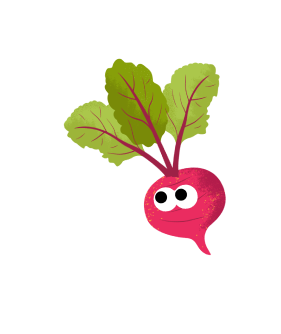
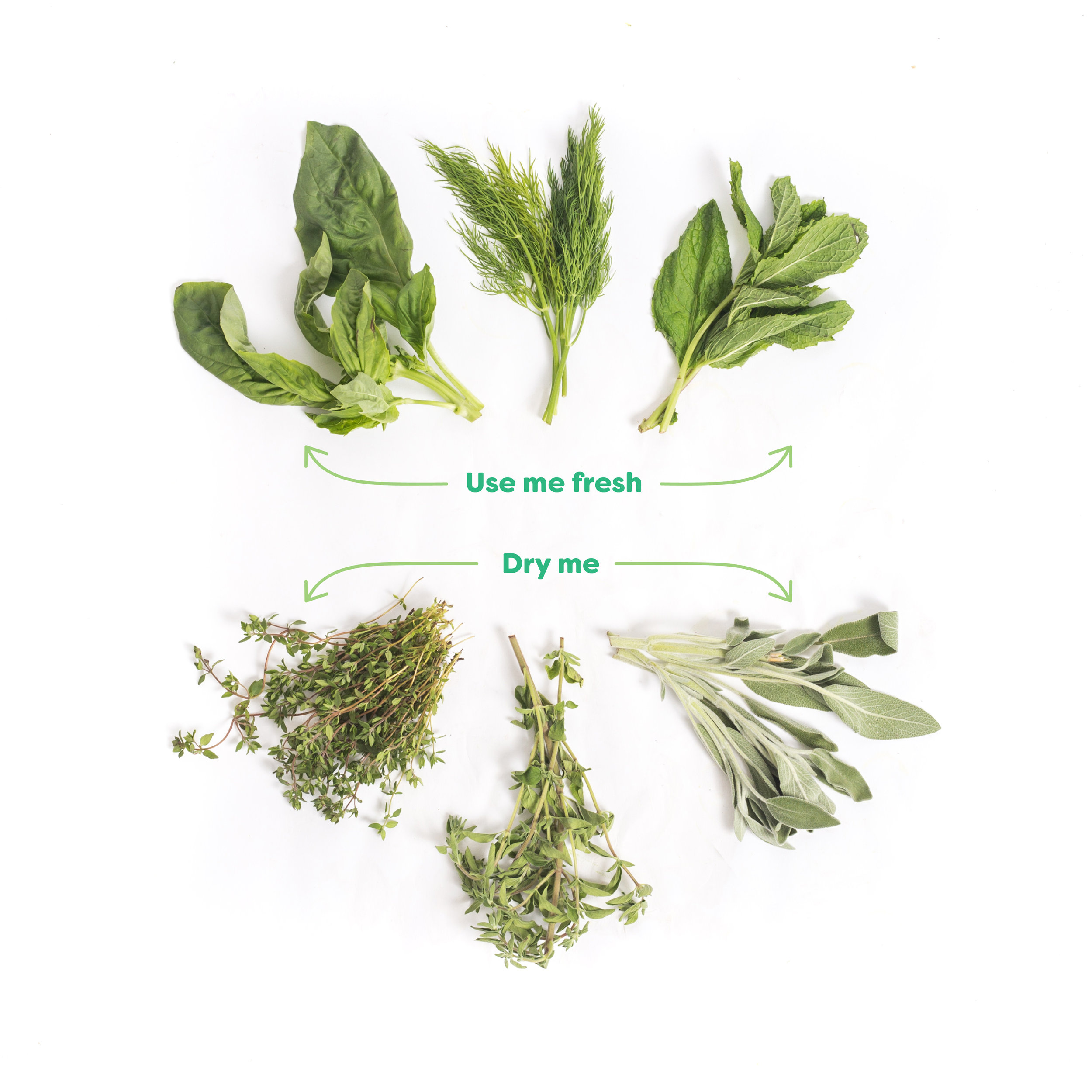


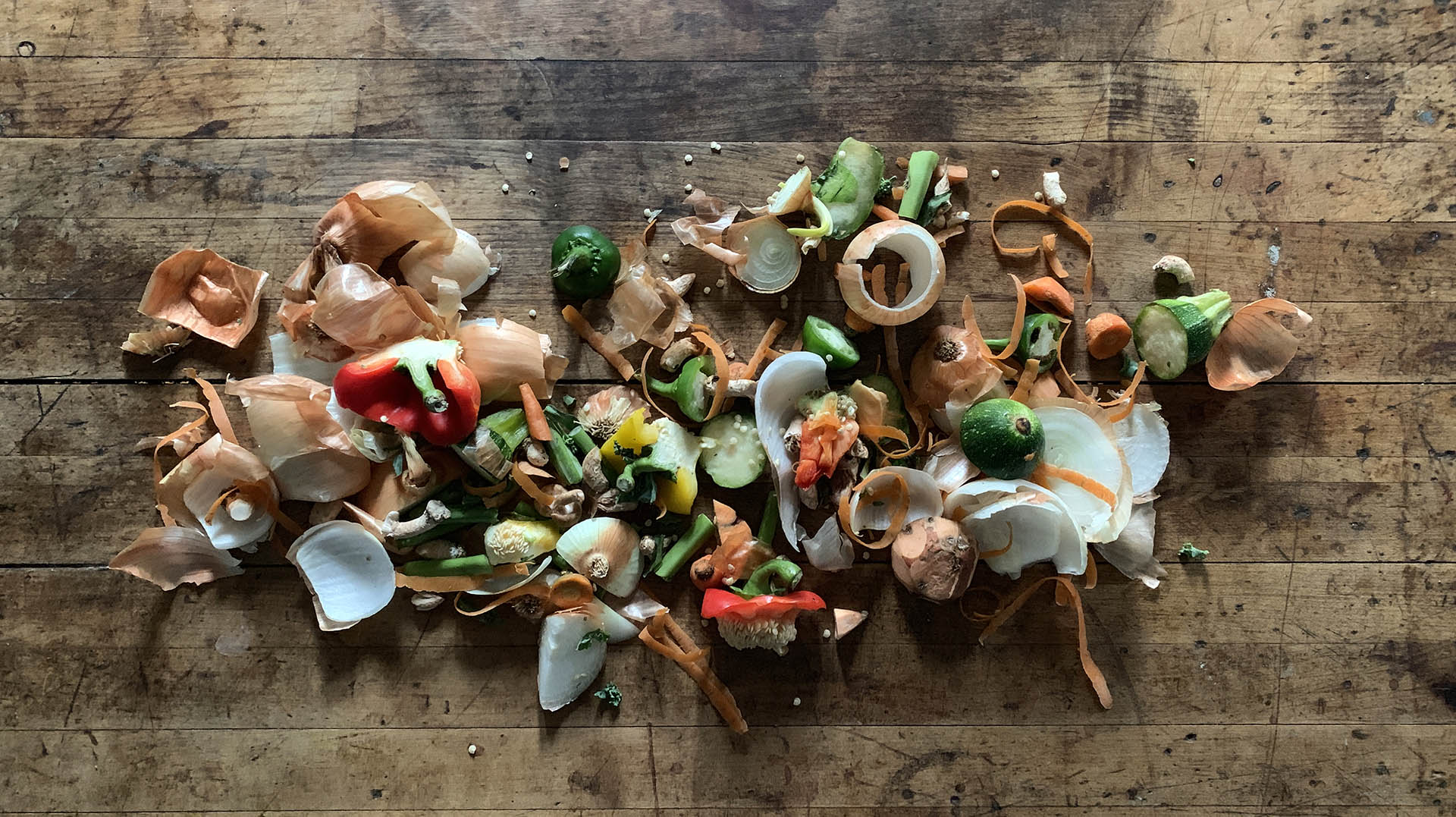
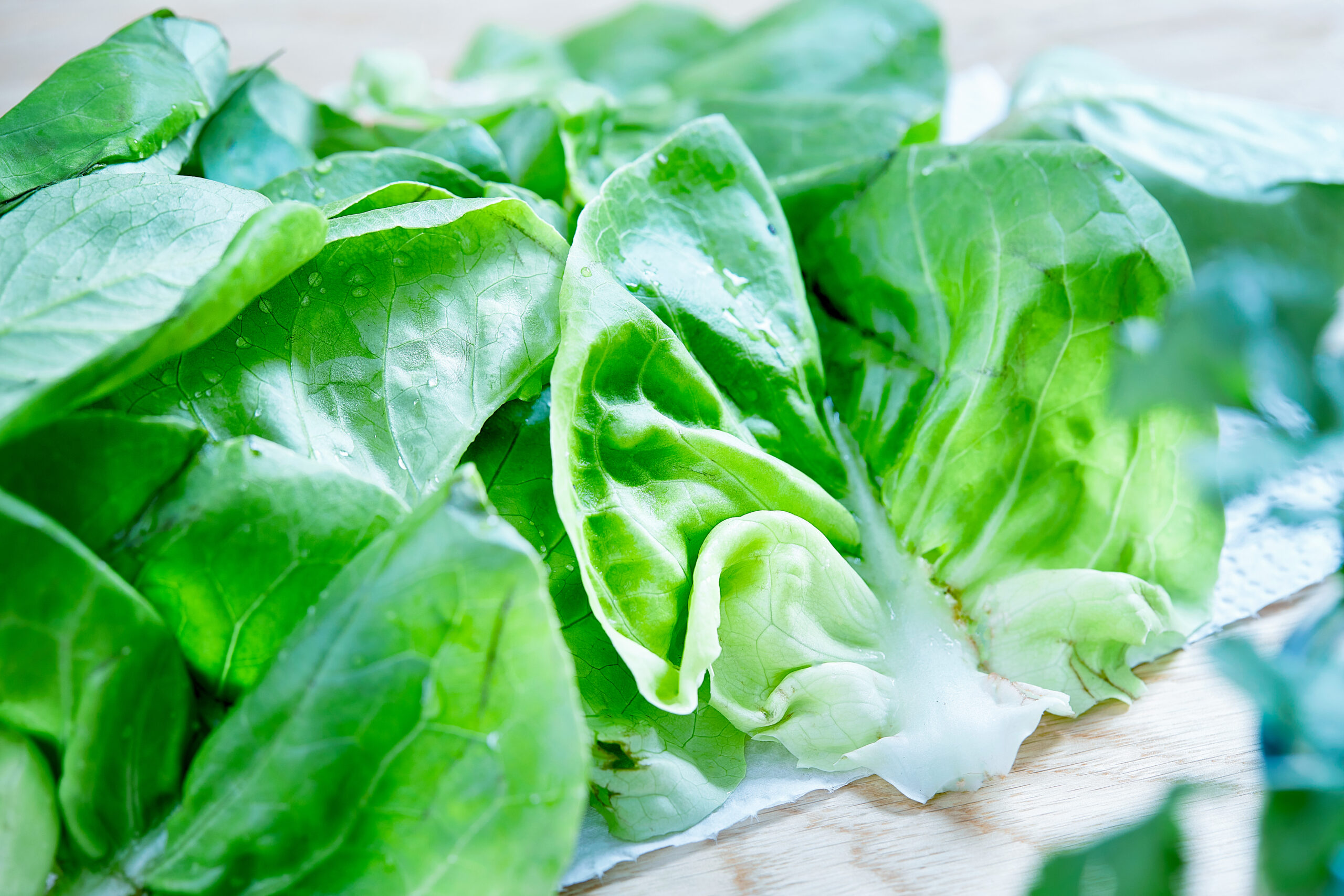
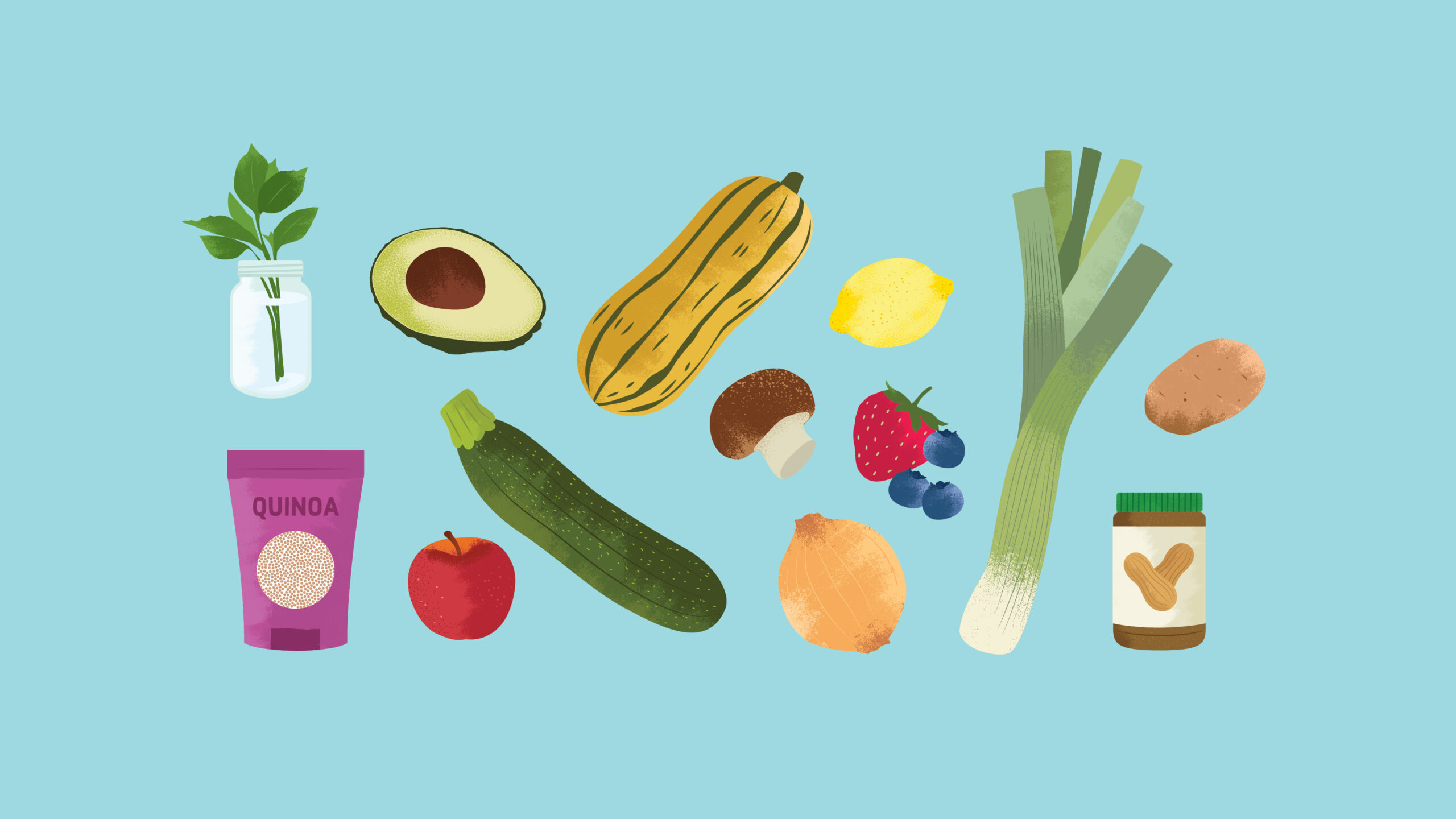

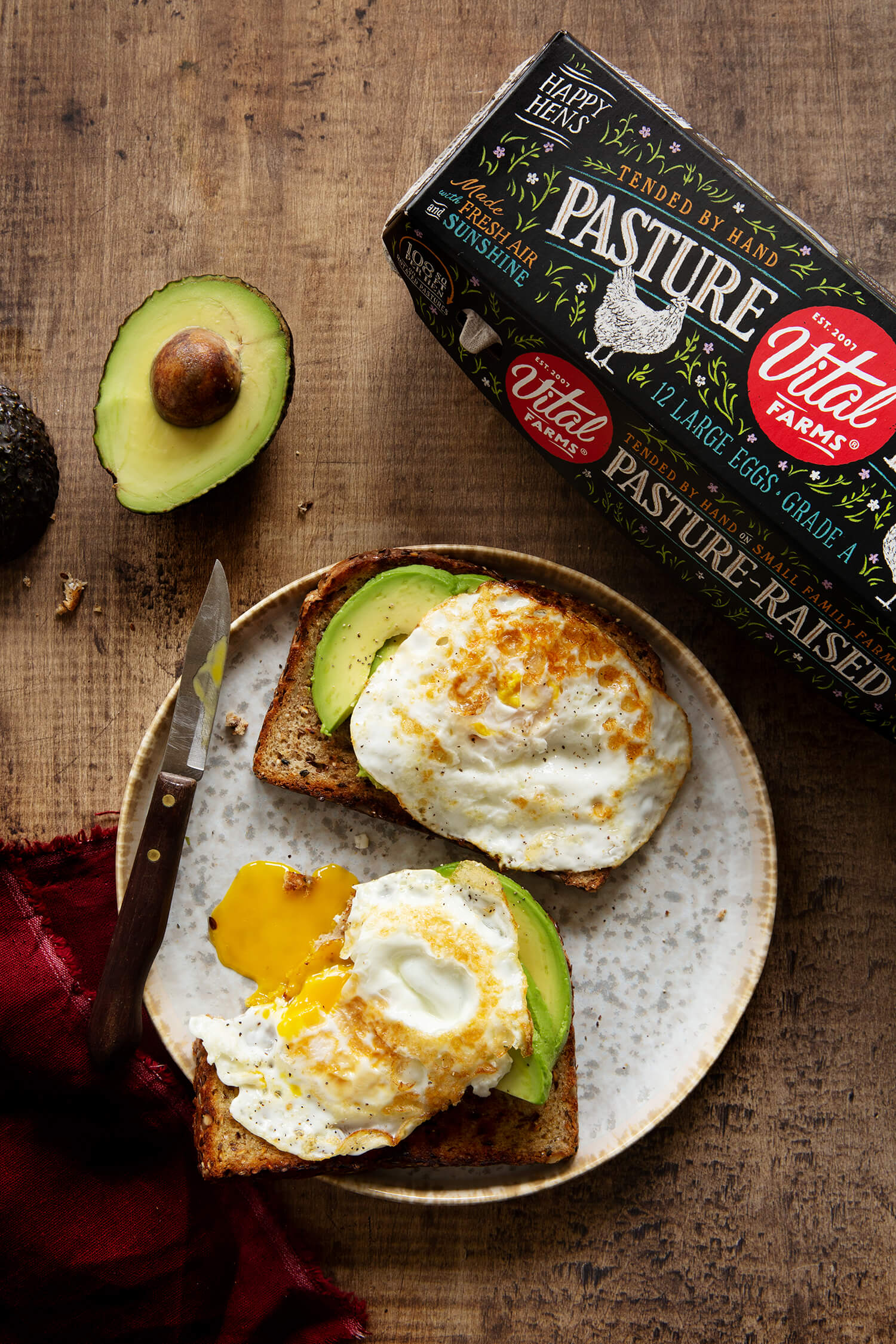

Thx for reinforcing my decision to join Imperfect Produce! I’m learning so much, probably eating and trying a wider variety of fruits and veggies AND helping decrease waste. Tonight i used my roasted acorn squash in a Mac & Cheese recipe using Lental and Cauliflower Penne And topped it with steamed broccoli. So good!
Hey Amy!
Thank you for supporting our mission and helping us grow and feed more people. We really couldn’t do it without you. We’re so happy to hear that you’re learning more about produce and enjoying cooking more thanks to your Imperfect box. This makes us so happy to hear!